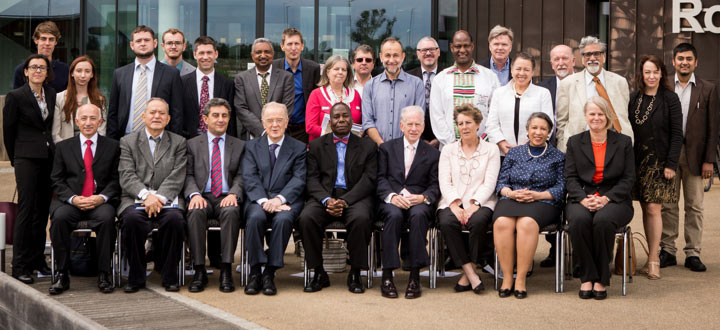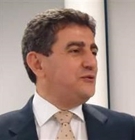York Accord seeks international support for universities caught up in conflict
-
Research
- Justice and Equality
Posted on 22 July 2015
Our researchers are working with the Brookings Doha Center in an international drive to understand and protect the needs of higher education institutions caught in the crossfire of armed conflict.

Higher education cannot be ignored; it is an important component of development and conflict resolution around the world”
Following extensive analysis of the difficulties caused by the collapse of higher education in war zones across the world, international academics gathered at York to call for increased global support.
They agreed details of the York Accord, a document which sets down in writing for the first time a minimum understanding of the basic principles for protection and recovery after conflict for higher education. The announcement generated international media attention - links to some of the coverage are in 'Discover the Details' at the end of this story.
Key recommendations agreed at the Accord meeting include:
- National, regional and internationally legally responsible bodies to investigate attacks on higher education and hold perpetrators to account;
- Practical steps towards offering safe haven to scholars and academics affected by conflict;
- States and higher education institutions should review and update emergency protection and preparedness;
- Proposal to create a Rapid Response Mechanism for Higher Education to mitigate the effects of conflict and ensure students can return to university quickly.
A letter detailing the key recommendations in the report will be sent to the United Nations Special Envoy on Global Education, Gordon Brown.
Professor Sultan Barakat, Director of Research at the Brookings Doha Center, said: “The idea is to get as many universities as possible to sign up to the Accord. We are targeting the higher education institutions in the first place but we would like Gordon Brown to take it on board.
Conflict resolution
“Higher education cannot be ignored; it is an important component of development and conflict resolution around the world.”
Delegates at the meeting – hosted in collaboration with Brookings Doha Center and the Institute of International Education (IIE) – highlighted the important role of education as a means of understanding and resolving conflict.
They heard that the need for the Accord could not be more pressing. It follows a string of violent attacks on academic institutions world-wide – most recently in April when al-Shabab militants killed 147 people, mostly students, during an assault on Garissa University College in Kenya.
In Iraq, almost 500 academics have been assassinated and campuses looted, burned or destroyed in the bloody post-war violence.
The York Accord delegation was led by the former President of Portugal and laureate of the first UN Nelson Mandela Prize, Jorge Sampaio. Other delegates included Professor Joseph Isaac, President of the African Methodist Episcopal University, Liberia and Dr Allan Goodman, President and CEO of the Institute of International Education and Professor Richard Mibey, President of Moi University, Kenya.
Professor Barakat added: “This was the first time we were able to bring around the table vice-chancellors and senior academics from some of those conflict-affected countries. We had representation from Liberia, Kenya, Iraq, Jordan, Lebanon and Syria.
Recommendations
“We allowed them the time to express their concerns and I think that was very important and significant. The recommendations that have come out are practical, realistic and badly needed today.”
The University of York Vice Chancellor, Professor Koen Lamberts, said York was a fitting institution to host the meeting.
He said: “We have an enduring commitment to helping academics and institutions who are innocent victims of conflict. The Accord is a way of helping them in times of great peril and it reflects one of our main research themes of justice and equality.
Peace and prosperity
“Without a functioning and thriving higher education system, societies cannot progress towards peace and prosperity while entire generations of leadership are lost.”
York has a world-leading reputation as a centre of expertise in the study of conflict analysis, peace building and social justice. Our Post-war Reconstruction and Development Unit (PRDU) combines theoretical understanding and objective analysis of the dynamics that drive warfare with research into the best ways to deal with consequences of conflict.
An interdisciplinary programme of research with the University’s Institute for Effective Education (IEE) looks at the importance of re-building education systems in war-torn countries such as Somalia where three decades of conflict have decimated the country’s state education system.
The text of this article is licensed under a Creative Commons Licence. You're free to republish it, as long as you link back to this page and credit us.

Professor Sultan Barakat
Founder of the Post-war Reconstruction and Development Unit at the University of York and Director of Research at the Brookings Doha Center
Discover the details
- Read the full text of the York Accord
- Find out more about the Institute of International Education
- The York Accord has generated media interest from around the world. Here's a selection of some of the coverage: Higher education vital to post-conflict rebuilding was published in University World News; Academics meet to declare support for universities hit by conflict appeared in Times Higher Education; In the Wake of War, What About Universities? was published in Al-Fanar Media; University delighted to agree new accord was published in the The Yorkshire Post; Accord to protect HE in conflict zones appeared in The Pie News (Professionals in International Education);
Show your support
- Show your support by tweeting about the York Accord using #YorkAccord or email your comments to support-york-accord@york.ac.uk
Explore more research

A research project needed to spot trees on historic ordnance survey maps, so colleagues in computer science found a solution.

We’re using gaming technology to ensure prospective teachers are fully prepared for their careers.

A low cost, high-accuracy device, could play a large part in the NHS's 'virtual wards'.
